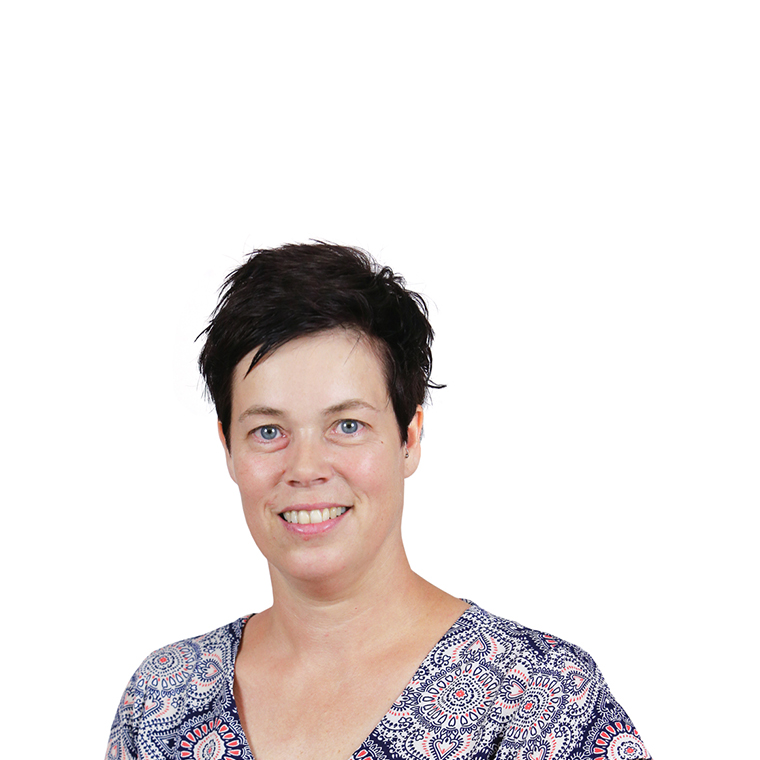Group leader: Dr. Frank van Leeuwen
Modeling drug resistance in IKZF1 deleted ALL
In ALL, treatment response is to a large part determined by the (cyto)genetic context, which has led to the implementation of risk-adapted therapies based on specific genetic abnormalities. By focusing on the molecular mechanisms that contribute to therapy resistance in distinct high risk ALL subtypes, we can develop novel, more personalized treatment strategies aimed at preventing (or curing) relapse.
Research direction
Deletions and mutations affecting lymphoid transcription factor IKZF1 are associated with poor outcome in BCP-ALL. We have recently shown that loss of IKZF1 function promotes resistance to glucocorticoid-induced apoptosis. In addition, we observed that deletion of IKZF1 affects the response to specific antimetabolites, both in cell line models and patient-derived xenografts. We are exploring how loss of IKZF1 affects metabolic handling of these drugs and we are using drug synergy studies to identify agents that overcome these resistance mechanisms.
Aims:
- To obtain detailed insight into how metabolic changes associated with loss of IKZF1 function affect response to therapy
- To identify small molecule inhibitors that can be used to overcome resistance to synthetic glucocorticoids or antimetabolites in IKZF1 deleted ALL
Breaking therapy resistance using CRISPR/CAS9 based lentiviral screens
Although we can now identify patients at risk of developing relapse, therapeutic options for relapsed patients are still limited. Currently, there is insufficient knowledge to selectively target therapy resistant cells with precision medicines. We expect that a detailed insight into the molecular mechanisms by which distinct genetic events render cells unresponsive to treatment, will allow the development of selective (adjuvant) targeted therapies for these high risk patients groups.
We are using CRISPR/Cas9 based lentiviral screens to uncover pathways driving therapy resistance in BCP-ALL. For these screens we use well characterized ALL cell line models. Using this approach we successfully identified a number of kinases that, upon inhibition, strongly enhance responses to drugs commonly used in the treatment of ALL. For in vivo validation studies, we are building a large collection of representative patient-derived xenografts of relapsed/refractory ALL cases. This project is carried out in collaboration with the group of Roland Kuiper.
Aims:
- To expand these screens to include other cytotoxic drugs as well as use other (more complex) libraries to further define specific vulnerabilities in distinct high risk ALL subtypes
- Develop more tailored (subtype specific) therapies for high risk ALL
Improving Asparaginase therapy response
Asparaginase (ASNase) is a key component in the treatment of ALL. A poor response to ASNase is associated with increased relapse risk. This bacterially-derived enzyme acts primarily by depletion of asparagine (Asn) from the blood. As lymphocytes and leukemic blasts are selectively dependent on the exogenous supply of Asn, exposure to ASNase leads to a cessation of growth and the induction of cell death. The response of leukemic cells to ASNase (cellular quiescence or apoptosis) is dependent on the genetic makeup of the leukemia and the extent of Asn depletion in the cellular microenvironment. For instance, leukemic cells present in the bone marrow or the central nervous system (CNS) appear to be less responsive ASNase treatment, as a result of incomplete Asn depletion, enhancing the chance of relapse.
Research direction
Using a CRISPR/Cas9-based kinome screen in pre-B ALL cells, we found that targeted deletion of a number of distinct kinases can sensitize leukemic cells to ASNase induced apoptosis. Moreover, we observed that some specific kinase inhibitors show potent synergy with ASNase in a variety of ALL cell lines and patient-derived ALL xenografts. This project is carried out in collaboration with the group of Roland Kuiper.
Aims
- To obtain detailed molecular insights into how kinase signaling affects the cellular response to ASNase-induced nutrient starvation
- To identify and validate kinase inhibitors that synergize with ASNase to increase treatment efficacy and reduce the number of relapses
- Van Leeuwen Group (with Kuiper group) : KWF 10072: Breaking therapy resistance in IKZF1 deleted Acute Lymphoblastic Leukemia (2017-2021)
- Van Leeuwen Group (with Kuiper Group): KWF 11049: Improving asparaginase therapy response in acute lymphoblastic Leukemia by targeting pre-B cell receptor signaling (2019-2023)
- Kuiper group (with van Leeuwen group): KWF 12482: Mechanisms of hypermutation in relapsed acute lymphoblastic leukemia in children and implications for treatment (2019-2023)
- Van Leeuwen group: KiKa333: Improving antimetabolite therapies for IKZF1 deleted Leukemia (2019-2020)
- van Leeuwen group (with Stam Group) KWF 14253: Improving therapy response by targeting
onine methionine metabolism in MLLr leukemia. (2022-2026) - Van Leeuwen group KWF 14659: Improving nucleoside-based therapies for (pediatric) Acute Leukemias (2023-2027)
- Butterfly Cofund: Amino Acid depletion therapies for (relapsed) T cell Acute Lymphoblastic Leukemia (2023-2027)
- Fight Kids Cancer ; ALLTogether team science – development of a preclinical testing platform to improve outcomes for drug resistant T-cell Acute Lymphoblastic Leukemia (2024-2025)
van der Meer, L.T., E. Waanders, M. Levers, H. Venselaar, D. Roeleveld, J. Boos, C. Lanvers, R.J. Bruggemann, R.P. Kuiper, P.M. Hoogerbrugge, F.N. van Leeuwen*, and D.M. te Loo*. A germ line mutation in cathepsin B points toward a role in asparaginase pharmacokinetics. (2014) Blood, 124(19):3027-9. 2. PubMed PMID: 25377564
Marke, R., J. Havinga, J. Cloos, M. Demkes, G. Poelmans, L. Yuniati, D. van Ingen Schenau, E. Sonneveld, E. Waanders, R. Pieters, R.P. Kuiper, P.M. Hoogerbrugge, G.J. Kaspers, F.N. van Leeuwen*, and B. Scheijen*. Tumor suppressor IKZF1 mediates glucocorticoid resistance in B-cell precursor acute lymphoblastic leukemia. (2016) Leukemia, 30(7):1599-603. 3. PubMed PMID: 26713593
van der Meer, L.T., S.Y. Terry, D.S. van Ingen Schenau, K.C. Andree, G.M. Franssen, D.M. Roeleveld, J.M. Metselaar, T. Reinheckel, P.M. Hoogerbrugge, O.C. Boerman, and F.N. van Leeuwen. In Vivo Imaging of Antileukemic Drug Asparaginase Reveals a Rapid Macrophage-Mediated Clearance from the Bone Marrow. (2017) J Nucl Med, 58(2): 214-220. 4. PubMed PMID: 27493268
Waanders, E., B. Scheijen, M.C. Jongmans, H. Venselaar, S.V. van Reijmersdal, A.H. van Dijk, A. Pastorczak, R.D. Weren, C.E. van der Schoot, M. van de Vorst, E. Sonneveld, N. Hoogerbrugge, V.H. van der Velden, B. Gruhn, P.M. Hoogerbrugge, J.J. van Dongen, A. Geurts van Kessel, F.N. van Leeuwen* and R.P. Kuiper*. Germline activating TYK2 mutations in pediatric patients with two primary acute lymphoblastic leukemia occurrences. (2017) Leukemia, 31(4): 821-828. 5. PubMed PMID: 27733777
Wortel, I.M.N., L.T. van der Meer, M.S. Kilberg, and F.N. van Leeuwen. Surviving Stress: Modulation of ATF4-Mediated Stress Responses in Normal and Malignant Cells. (2017) Trends Endocrinol Metab,. 28(11): 794-806. PubMed PMID: 28797581













